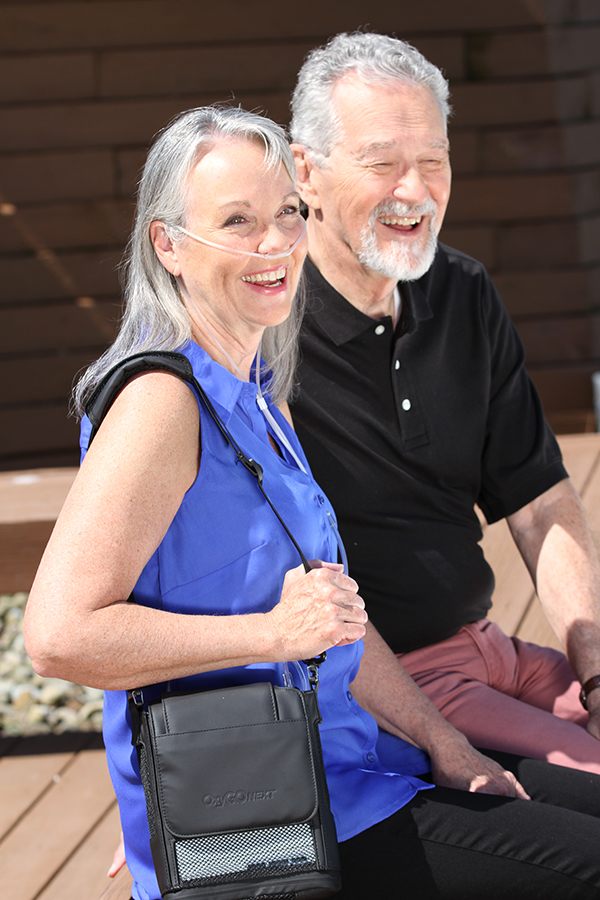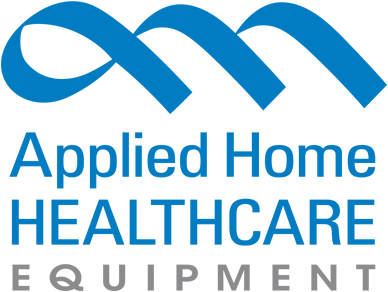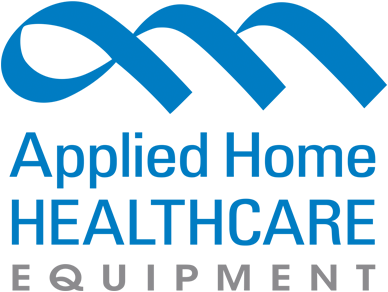PRODUCT CATEGORIES
CLASSES/REGISTRATION
WHAT'S YOUR ROLE?
The Power of Portability: How POCs Improve Patient Lives
Portable oxygen concentrators (POCs) have revolutionized the way patients manage their oxygen therapy. No longer confined to their homes or burdened by bulky oxygen tanks, patients can now enjoy a level of freedom and independence that significantly enhances their quality of life. For home healthcare providers, understanding the benefits of POCs is crucial in recommending the best solutions for their patients' needs.
Why Choose Portable Oxygen Concentrators?
Enhanced Mobility and Independence
One of the most significant advantages of POCs is the mobility they offer. Unlike traditional oxygen tanks that are heavy and cumbersome, POCs are lightweight and easy to carry. Patients can go about their daily activities—whether it's a trip to the grocery store, a walk in the park, or even traveling—without the constant worry of running out of oxygen. This newfound freedom is not just a convenience; it dramatically boosts patients' mental and emotional well-being by allowing them to lead more active and fulfilling lives.
Discreet and Convenient
POCs are designed with discretion in mind. Many models are compact and quiet, allowing patients to use them without drawing unwanted attention. This feature is particularly important for those who may feel self-conscious about their oxygen therapy. The convenience of POCs extends to their maintenance as well; with rechargeable batteries and easy-to-use controls, patients can manage their oxygen therapy with minimal assistance.
How Portable Oxygen Concentrators Enhance Quality of Life
Better Adherence to Oxygen Therapy
One of the challenges of oxygen therapy is ensuring patients adhere to their prescribed oxygen levels. POCs make this easier by offering medical oxygen wherever the patient goes. This reduces the risk of oxygen deprivation, which can lead to serious health complications. Patients are more likely to stick to their therapy plans when they can do so without disrupting their daily routines.
Improved Mental and Physical Health
The ability to stay active and participate in social activities has a profound impact on both mental and physical health. For many patients, the isolation that comes with being tethered to a stationary oxygen unit can lead to depression and a decline in physical fitness. POCs change this dynamic by allowing patients to stay connected with their communities and maintain a healthier lifestyle. The improved oxygenation also helps alleviate symptoms such as fatigue and shortness of breath, enabling patients to engage more fully in their favorite activities.
Travel Freedom
Traveling with oxygen therapy used to be a daunting task, often requiring careful planning and coordination with airlines or other travel providers. POCs have simplified this process significantly. Many POCs are FAA-approved, meaning patients can take them on airplanes, making travel a viable option once again. This opens up new possibilities for patients who want to visit family, explore new places, or simply enjoy a vacation.
Key Considerations for Home Healthcare Providers
Patient Education and Support
While POCs offer numerous benefits, it's essential for home healthcare providers to educate patients on their proper use and maintenance. Providing comprehensive training on how to operate the device, manage battery life, and troubleshoot common issues is crucial for maximizing the benefits of POCs. Additionally, offering ongoing support can help patients feel confident and comfortable with their POC, ensuring they get the most out of their oxygen therapy.
Customizing Oxygen Therapy Solutions
Every patient has unique needs, and POCs come in a variety of models with different features. Home healthcare providers should assess each patient's lifestyle, mobility level, and oxygen requirements to recommend the most suitable POC. By customizing oxygen therapy solutions, providers can help patients achieve optimal health outcomes while maintaining their independence.
Empowering Patients with Portable Oxygen Concentrators
Portable oxygen concentrators have transformed the landscape of oxygen therapy, offering patients unparalleled freedom, convenience, and quality of life. For home healthcare providers, understanding the advantages of POCs and educating patients on their use is key to helping improve patient outcomes. By empowering patients with the right tools and knowledge, we can help them lead healthier, more fulfilling lives.
You Might Also Like
Subscribe to our Newsletter
Get the latest regulatory info, accreditation news and exclusive discounts!
 View Cart []
View Cart []
